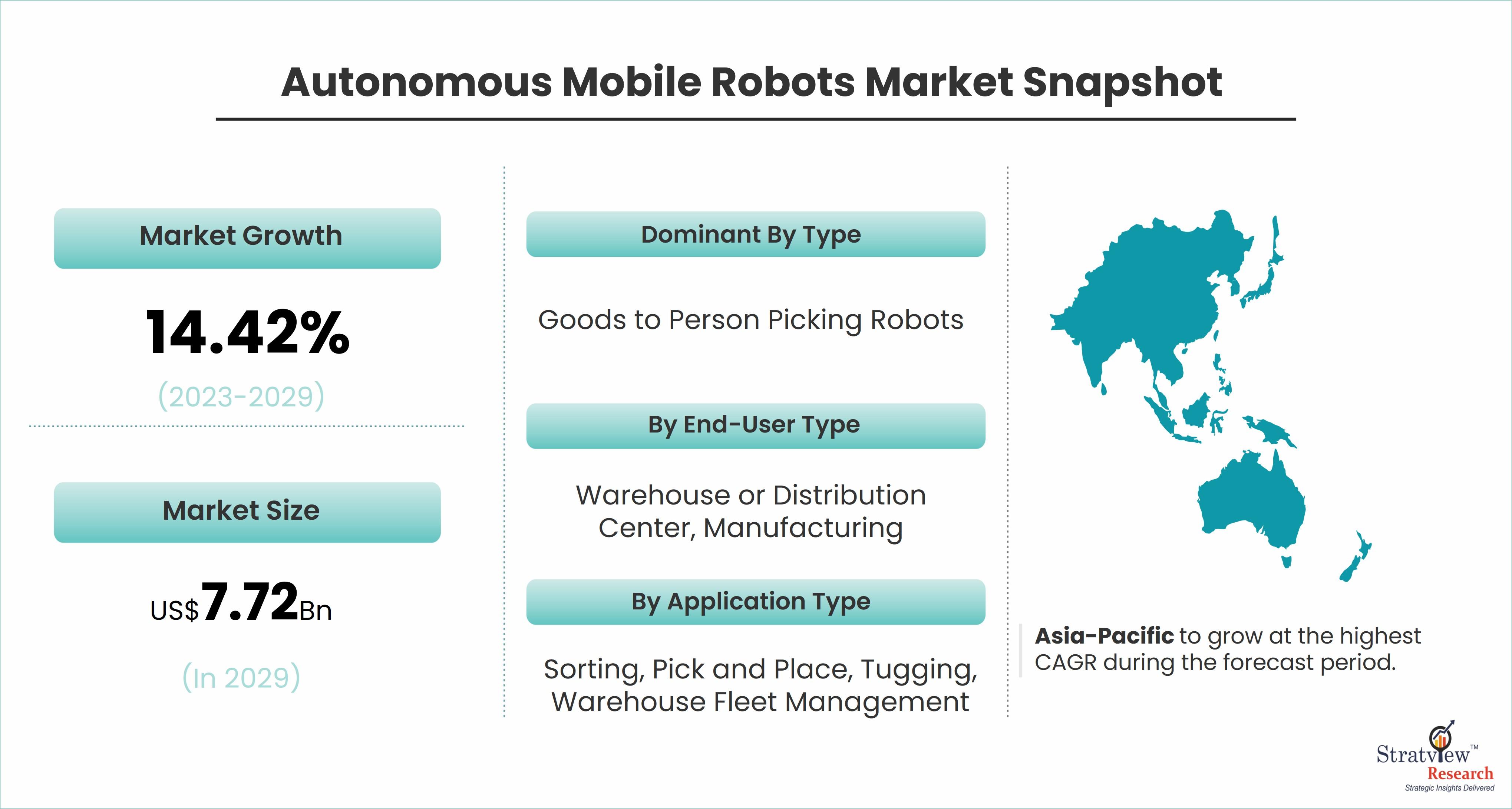The Rise of Autonomy: Exploring the Mobile Robots Revolution

According to Stratview Research, the autonomous mobile robots market was estimated at USD 2.98 billion in 2022 and is likely to grow at a CAGR of 14.42% during 2023-2029 to reach USD 7.72 billion in 2029.
In recent years, a technological revolution has been quietly unfolding across industries worldwide, reshaping the way we work, manufacture, and interact with our environment. At the heart of this revolution lies the rise of mobile robots equipped with autonomy, intelligence, and versatility. From warehouses to hospitals, from factories to farms, mobile robots are transforming traditional processes and unlocking new possibilities. This article delves into the mobile robots revolution, exploring its origins, impact, and the future it promises to usher in.
Origins of the Mobile Robots Revolution
The roots of the mobile robots revolution can be traced back to the convergence of several key technological advancements. Advances in robotics, artificial intelligence (AI), sensing technologies, and mobility have enabled the development of robots capable of autonomous navigation and intelligent decision-making. What was once the realm of science fiction has now become a reality, as robots equipped with autonomy and mobility take center stage in various industries.
Applications Across Industries
The mobile robots revolution is transcending boundaries and finding applications across a wide spectrum of industries. In logistics and e-commerce, mobile robots are revolutionizing warehouse operations, automating tasks such as picking, sorting, and inventory management with unprecedented efficiency and accuracy. In manufacturing, they are optimizing production processes, increasing flexibility, and enabling agile, responsive operations.
Moreover, mobile robots are making significant inroads in healthcare, assisting with patient care, medication delivery, and logistics within hospitals and healthcare facilities. In agriculture, they are transforming traditional farming practices, automating tasks such as planting, harvesting, and crop monitoring, leading to increased productivity and sustainability. In retail, hospitality, and even residential settings, mobile robots are enhancing customer service, streamlining operations, and delivering unparalleled convenience.
Technological Advancements
Central to the mobile robots revolution are the technological advancements that have propelled the development of intelligent, autonomous robots. Sensors such as LiDAR, cameras, and ultrasonic sensors enable robots to perceive and navigate their environment with precision and safety. AI and machine learning algorithms empower robots to make complex decisions, adapt to dynamic environments, and learn from experience.
Furthermore, advancements in mobility, manipulation, and human-robot interaction are expanding the capabilities and versatility of mobile robots. Collaborative robots, or cobots, are designed to work alongside humans, augmenting human capabilities and improving overall productivity. As technology continues to evolve, the potential applications and benefits of mobile robots are poised to grow exponentially, driving further innovation and adoption.
Challenges and Opportunities
Despite the remarkable progress made in the field of mobile robotics, challenges remain that must be addressed to fully realize the potential of the mobile robots revolution. Safety concerns, regulatory compliance, interoperability, and cost-effectiveness are among the key challenges facing widespread adoption. Additionally, the integration of mobile robots into existing workflows and processes requires careful planning and coordination to ensure seamless implementation and maximize return on investment.
However, with these challenges come significant opportunities for innovation, collaboration, and market growth. As the capabilities of mobile robots continue to improve and the cost of deployment decreases, industries worldwide stand to benefit from increased efficiency, productivity, and competitiveness.
Conclusion
In conclusion, the mobile robots revolution represents a transformative shift in the way we approach automation, productivity, and interaction with our environment. With their autonomy, intelligence, and versatility, mobile robots are poised to revolutionize industries and redefine the future of work. As technological advancements continue to drive progress and overcome barriers, the potential applications and benefits of mobile robots are limited only by our imagination. By embracing the opportunities and navigating the challenges of the mobile robots revolution, we can pioneer a future where intelligent, autonomous robots work hand in hand with humans to create a more efficient, productive, and sustainable world.
- Questions and Answers
- Opinion
- Story/Motivational/Inspiring
- Technology
- Art
- Causes
- Crafts
- Dance
- Drinks
- Film/Movie
- Fitness
- Food
- Spellen
- Gardening
- Health
- Home
- Literature
- Music
- Networking
- Other
- Party
- Religion
- Shopping
- Sports
- Theater
- Wellness
- News
- Culture
- War machines and policy

